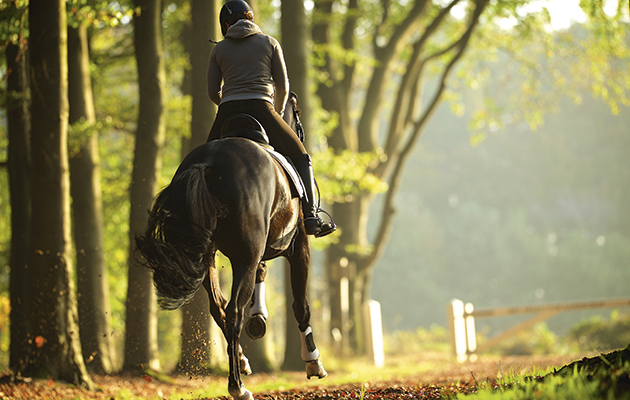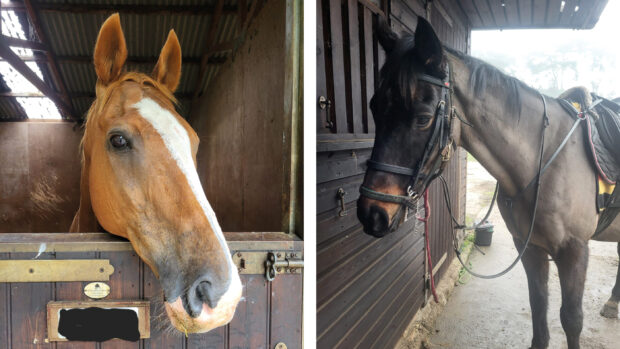A racehorse trainer is warning owners to check their paddocks for sycamore seeds and seedlings after losing a talented racehorse to atypical myopathy earlier this week.
Take A Bow, an eight-year-old thoroughbred in training with Lawney Hill, died on Sunday (2 April) after the condition rapidly took hold.
The son of Norse Dancer had won over fences, hurdles and a bumper, and was set for a bright future.
He had been out grazing in a paddock (not pictured) with another horse, in a field where equines have been kept for more than 40 years.
There are no sycamore trees surrounding the field, but winter storms must have blown the seeds onto the patch of land.
Lawney wants to raise awareness of the condition and to make owners realise this can happen to anyone.
“This was a fit and healthy, big, strong horse. I was at a loss,” Lawney told H&H. “This is a freak accident and I want to highlight it and people to know about the condition.
“Don’t let it be your horse.”
Some sycamore seeds, leaves and seedlings contain a toxin called hypoglycin A, which is highly poisonous to horses. The condition has a very high mortality rate, of around 70%.
The condition is mainly associated with autumn, however it can — and does — affect horses in the spring.
Lawney told H&H that he seemed very lethargic and was showing signs of colic when she went to check on him on Saturday morning (1 April).
She immediately rang the vet, who arrived within 10 minutes. In that time he started sweating and was standing with his head in a bush at the edge of the field as if he “wanted to hide”.
He did not want to move and Lawney managed to gradually lead him in from the field to his stable. When the vet arrived she gave him a rectal examination and painkillers, but found no signs of impaction.
Once the pain relief kicked in, his condition appeared to improve for a short while.
The yard kept a close check on him and later that day Lawney rang the vet again as he began to deteriorate once more.
Both Bob Baskerville and Katie Robinson, of Hampden Veterinary Practice, examined the horse and did everything they could for him that day.
He was taken in to Donnington Grove equine hospital, who confirmed it was atypical myopathy. Sadly the vets could not save him and he had to be euthanised in the early hours of the following morning.
The other horse who was in the field with Take A Bow at a time has shown no signs of the condition.
Lawney and her husband Alan have consulted an agronomist, sprayed the paddock and have put up signs around the yard warning of the dangers of sycamore seeds and seedlings.
The couple are farmers and the fields are well maintained. This particular field had been rested over the winter and had plenty of fresh spring grass.
The National Hunt trainer has shared the news across social media to raise awareness of the condition.

Atypical myopathy: what you need to know right now to keep your horses safe

How to protect horses from atypical myopathy

H&H question of the week: ‘Seasonal pasture myopathy — what are the signs and prognosis?’
Nikki Pursey MA VetMB CertAVP(ESM) MRCVS of Farr & Pusey Equine Vets shares her expert advice on the deadly seasonal



